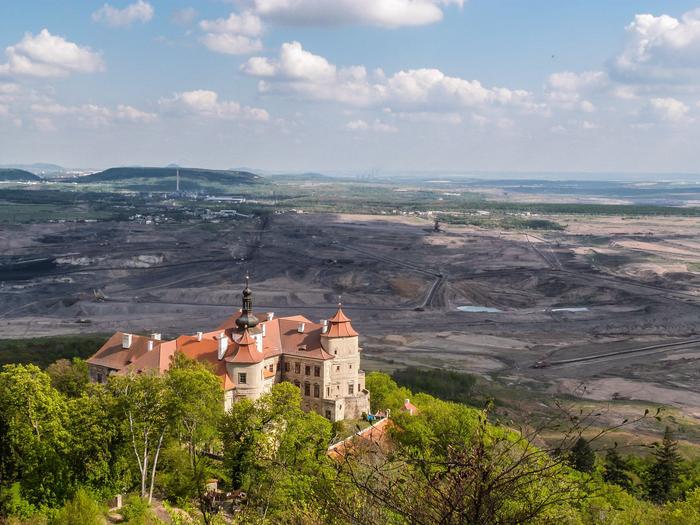Mining brings huge social and environmental change to communities: landscapes, livelihoods and the social fabric evolve alongside the industry. But what happens when the mines close? What problems face communities that lose their main employer and the very core of their identity and social networks? A research fellow at the University of Göttingen provides recommendations for governments to successfully navigate mining communities through their transition toward non-mining economies. Based on past experiences with industrial transitions, she suggests that a three-step approach centred around stakeholder collaboration could be the most effective way forward. This approach combines early planning, local-based solutions, and targeted investments aimed at fostering economic and workforce transformation. This comment article was published in Nature Energy.

Credit: Kamila Svobodova
Mining brings huge social and environmental change to communities: landscapes, livelihoods and the social fabric evolve alongside the industry. But what happens when the mines close? What problems face communities that lose their main employer and the very core of their identity and social networks? A research fellow at the University of Göttingen provides recommendations for governments to successfully navigate mining communities through their transition toward non-mining economies. Based on past experiences with industrial transitions, she suggests that a three-step approach centred around stakeholder collaboration could be the most effective way forward. This approach combines early planning, local-based solutions, and targeted investments aimed at fostering economic and workforce transformation. This comment article was published in Nature Energy.
Dr Kamila Svobodova, Marie Skłodowska-Curie Research Fellow at the University of Göttingen, argues that, in practice, governments struggle to truly engage mining communities in both legislation and action. Even the more successful, often deemed exemplary, transitions failed to follow the principles of open and just participation or invest enough time in the process. Early discussions about how the future will look following closure help to build trust and relationships with communities. A combination of bottom-up and top-down approaches engages people at all levels. This ensures that the local context is understood and targeted specifically. It also establishes networks for collaboration during the transition. Effective coordination of investments toward mining communities, including funding to implement measures to support workers, seed new industries, support innovations, and enhance essential services in urban centres, proved to be successful in the past.
“To ensure energy security, it’s essential for governments to recognize the profound transformation that residents of mining communities experience when they shift away from mining,” Svobodova explains. “Neglecting these communities, their inherent strength of mining identity and unity, could lead to social and economic instability, potentially affecting the overall national energy infrastructure.”
Moving toward closure and consequently away from mining is not an easy or short journey. “It is essential that governments recognize that the transition takes time, and persistence is essential for success,” says Svoboda. “They should openly communicate their strategies, ensuring communities and other stakeholders are well-informed and engaged. Building trust and providing guidance helps residents navigate the uncertainties associated with transitions. By embracing the three-step approach that centers around stakeholder engagement, governments can prioritize equitable and just outcomes when navigating mining transitions as part of their energy security strategies.”
Original publication: Svobodova, K., “Navigating community transitions away from mining,” Comment article in Nature Energy 2023. DOI: 10.1038/s41560-023-01359-9. Full text available here: https://rdcu.be/dnmU3
Contact:
Dr Kamila Svobodova
University of Göttingen
Department of Agricultural Economics and Rural Development
Platz der Göttinger Sieben 5, 37073 Göttingen, Germany
Journal
Nature Energy
DOI
10.1038/s41560-023-01359-9
Method of Research
Observational study
Subject of Research
Not applicable
Article Title
Navigating community transitions away from mining
Article Publication Date
29-Sep-2023



